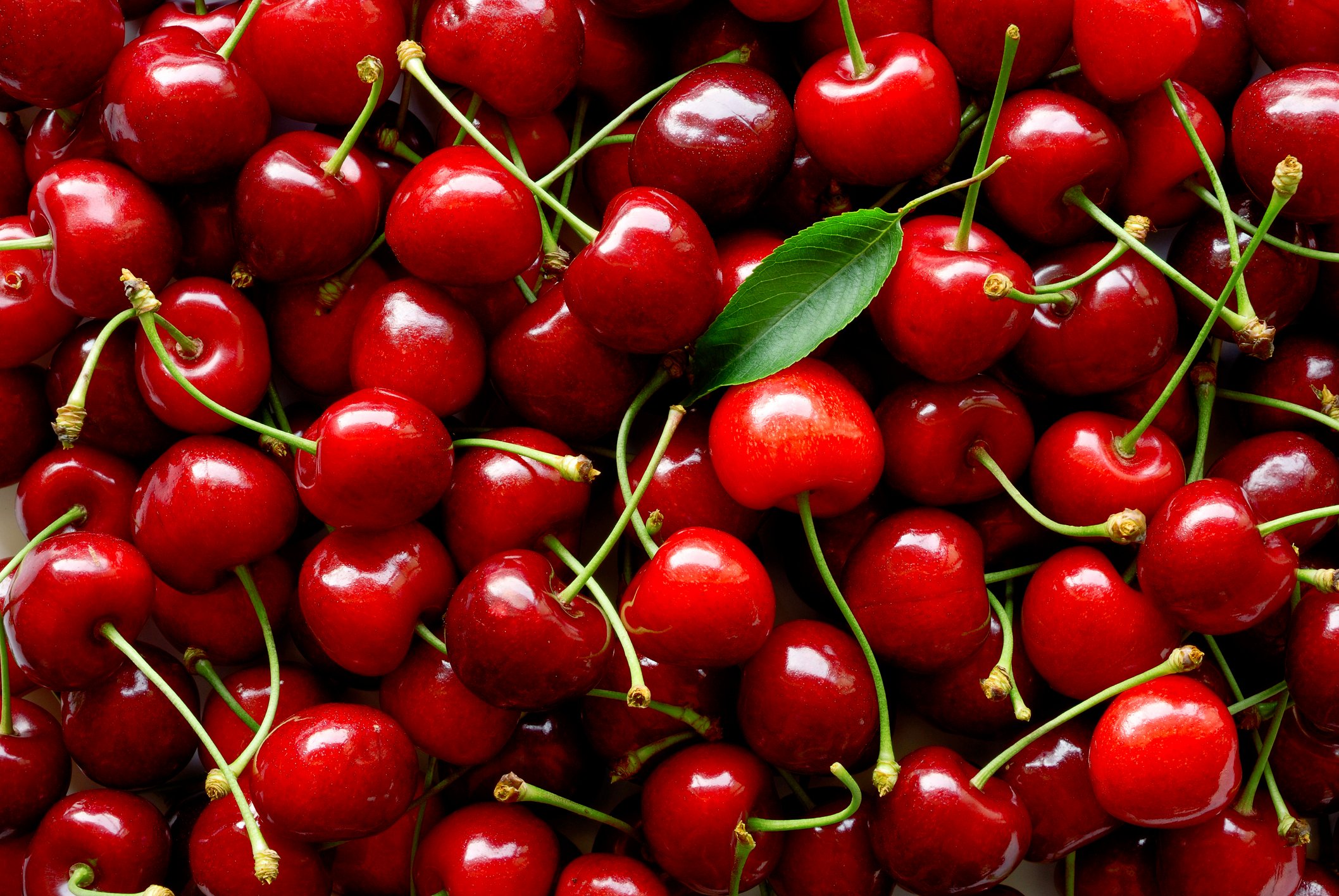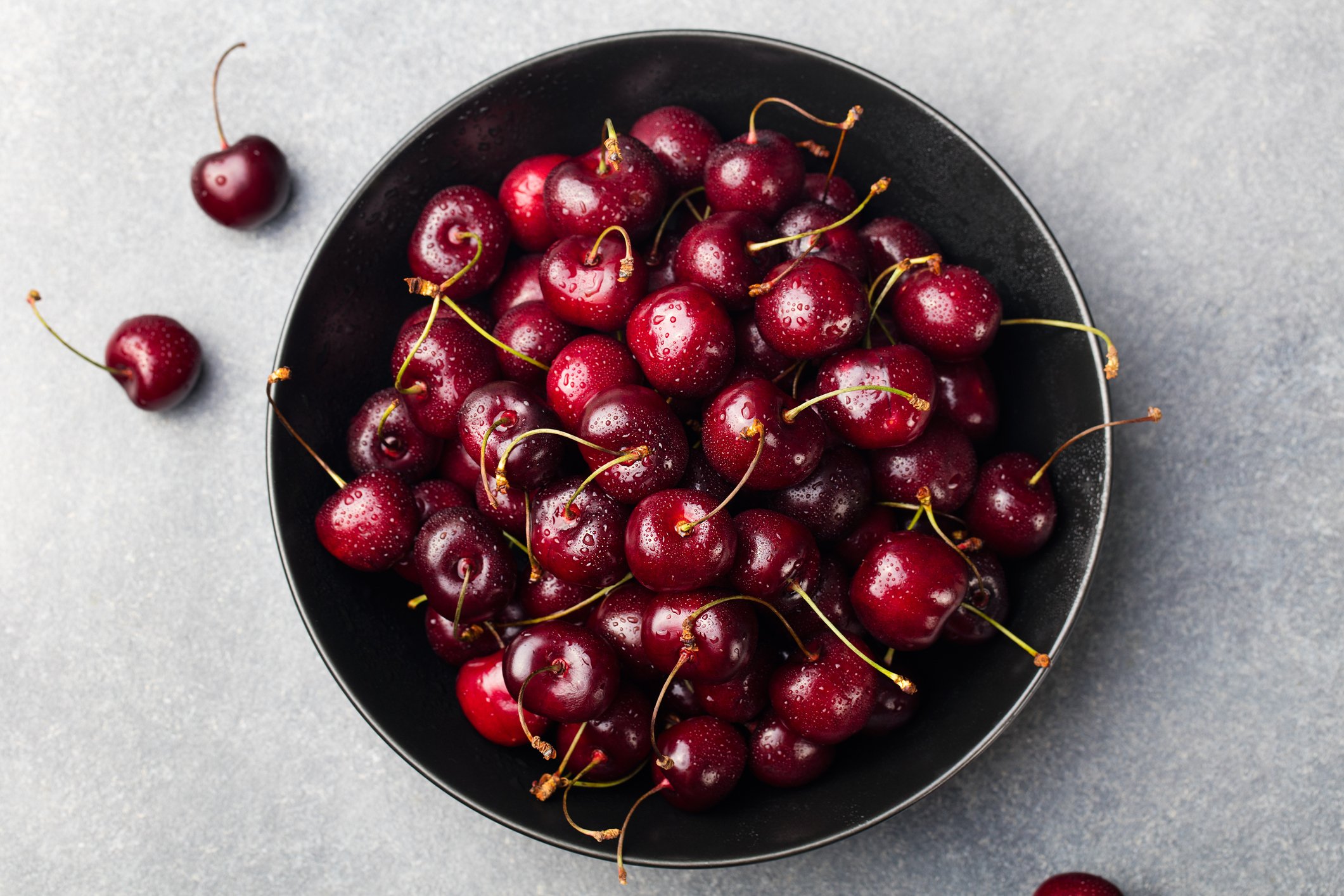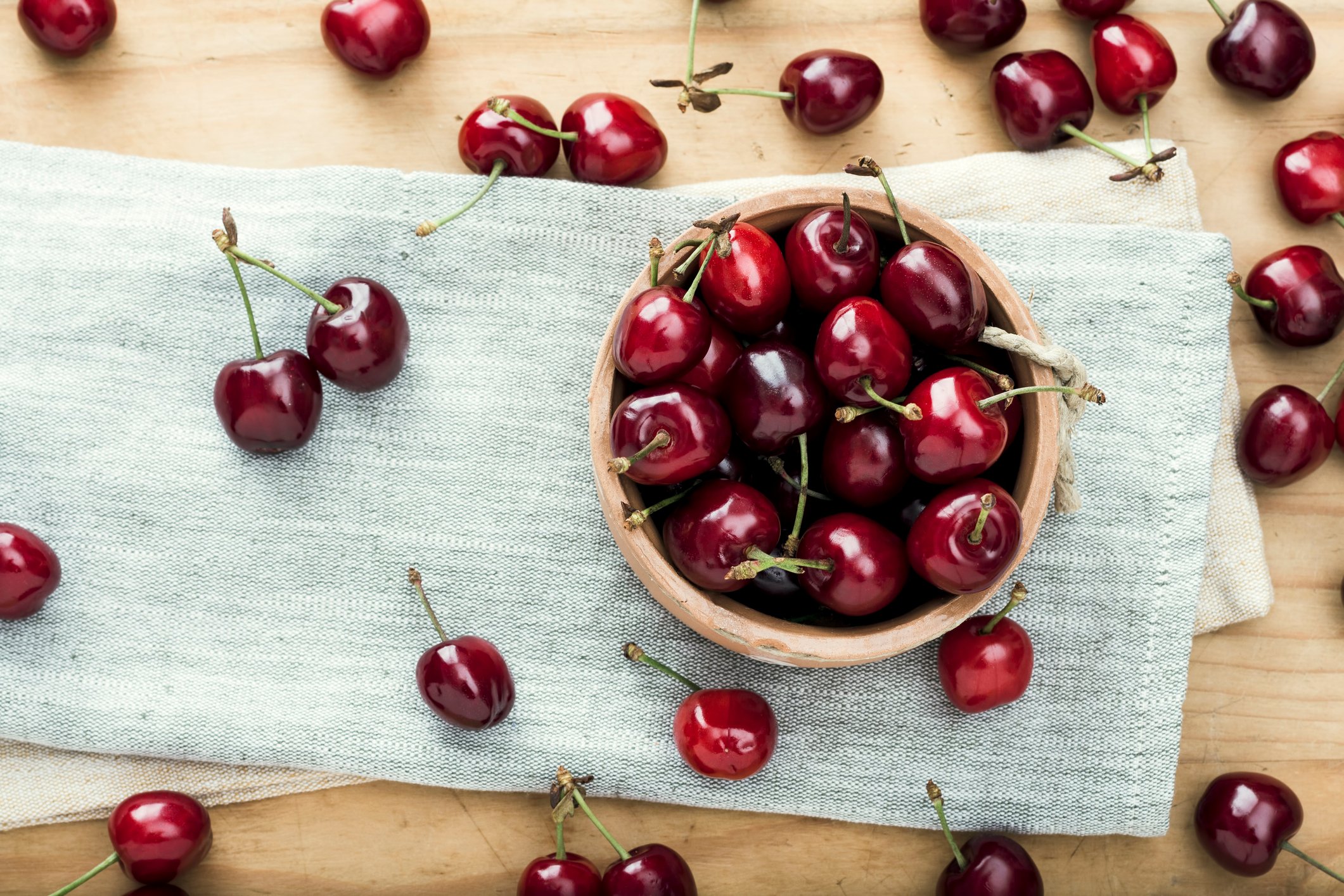Rich in fiber, potassium, iron, magnesium and zinc and full of vitamins A and C, cherries are truly worthy of being called a superfruit. And luckily, from white and red to sweet and sour, Turkey is home to a variety of delicious cherries.
In fact, cherries are an indispensable part of Turkish food culture – the sweet kind is eaten fresh, the sour kind is used in juices and nectars, and all kinds are used in desserts and jams. Cherries are also dried to be consumed year-round along with a variety of nuts as a healthy snack, also known as kuruyemiş (literal translation: dried fruit).
Cherries in Turkey can be divided into two main categories: kiraz, i.e. sweet cherries, and vişne, aka sour cherries.
The most known and consumed type of sweet cherry in Turkey is the Napoleon cherry. Large and firm but packed with sweet goodness, these cherries are a glossy, deep shade of red and are almost heart-shaped. Celeste, kordia, regina, sweet heart, starks gold and sunburst are other kinds of sweeter cherries produced in Turkey.
Among the variety of sour cherries grown in Turkey, dark red Kütahya sour cherries are the most preferred. Mule cherries are also widely used for fruit juice because they are full and soft. Montmorency, an American favorite, is also produced in Turkey.
Cherries are a summer fruit that grow in hot climates. Despite their love of warmth and sun, cherries are also very tough and durable when it comes to weather, with some types withstanding temperatures as cold as minus 26 degrees Celsius (minus 15 degrees Fahrenheit). This feature makes every corner of Turkey suitable for growing cherries.
However, the best cherries in the country grow on the northern slopes of the Taurus Mountains and throughout the Aegean region as well as in the western part of Central Anatolia. These three areas are the most productive regions for cherry-growing. On a city level, provinces such as Izmir, Manisa, Isparta, Afyonkarahisar and Denizli are the leading producers of cherries across Turkey. The majority of the cherries grown in these provinces are exported to countries such as Germany, the U.K., the Netherlands and Russia. You can find cherries at your local bazaar or grocery store from late May to mid-August.


But why choose cherries over other fruits? Here are just a few of the reasons:
Ease muscle pain
If you have an active sports life, are suffering from minor muscle aches from getting into a new fitness routine or are having muscle tension and pain from sitting around, cherries might be the thing you need. Like the fruits in the berry family, cherries are also significant blood thinners, giving more or less the same relief aspirin does. Cherries help alleviate pain and relax cramps by helping the blood flow more freely in capillary vessels. So pop a few cherries after an especially brutal workout and see for yourself. In fact, a randomized controlled trial in 2010 found that tart cherry juice had a protective effect in reducing muscle pain during running.
Strengthen the mind
Cherries help clean the blood that travels up to our brains by aiding in the removal of free radicals and toxins built up in our bodies from polluted air, processed food and smoking. This helps regulate the brain’s functions and, in turn, increases the brain’s ability to learn and remember information. The crimson fruit is also found to provide protection against neurological diseases such as Alzheimer’s and Parkinson’s.
In a study published in the European Journal of Nutrition in 2015, researchers found that drinking cherry juice regularly over 12 weeks improved cognitive function in older adults with dementia.
Delay aging
Did you know that cherries are full of 17 different types of antioxidants? Thanks to this amazing mix, they help get rid of toxins inside the body and prevent possible malfunctions in the renewal of cells. Antioxidants such as melatonin inside cherries also help neutralize the oxidative and inflammation process caused by aging. By way of helping cell renewal and maintaining cell health, cherries help us stay younger longer.

Lower blood sugar
If you are diabetic or have problems with insulin, you already know that you should be watching your sugar intake, especially in fruit. However, cherries are one of the best options out there, and they help lower glucose levels in the blood. A 2008 study with Type 2 diabetic women found that drinking 40 milliliters a day of concentrated tart cherry juice helped them lose weight and regulate blood sugar levels.
A good night’s sleep
Cherries, and in particular tart cherries, may be the sleeping pill you need if you are suffering from countless sleepless nights. Cherries are high in melatonin, which is a sleep-inducing hormone, thus helping you drift off easier and stay that way. A 2010 study published in the Journal of Medicinal Food found that cherries reduced the severity of insomnia and increased overall sleep efficiency in adults. So, a bowl of cherries or a glass of cherry juice before bed might just be what the doctor prescribed.
Anti-cancer powerhouse
The anthocyanin and quercetin inside cherries create a natural antioxidant effect that helps prevent cancer. These substances also stop cells from growing abnormally. A lot of the other phytochemicals and nourishing minerals and vitamins cherries contain also actively reduce cancer risk.
Thanks to their high fiber content, cherries can also aid weight loss. This helps prevent cancers tied to being overweight. A 2003 study published in the Cancer Letters journal found that anthocyanins in tart cherries inhibited the growth of human colon cancer cells.
However, consuming too many cherries can cause bloating, gas and even diarrhea, so be warned. Remember, the key is moderation.










Discussion about this post